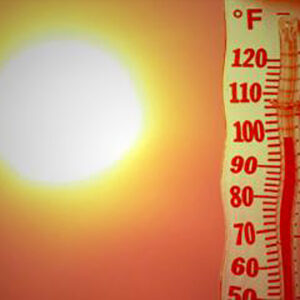
Stay Safe as High Temperatures Hit Spokane
Heat Advisory for Spokane through Friday
Media Contact: Kelli Hawkins 509.994.8968 | khawkins@srhd.org
SPOKANE, Wash. – Hot weather can be more than just uncomfortable, and can pose a threat to people’s health or even their lives, say experts at Spokane Regional Health District.
National Weather Service Spokane has issued a heat advisory that will be in effect until 8 p.m. Friday. Temperatures are expected to rise into the 90s and 100s, which can be especially problematic for those who are heat sensitive and those without effective cooling and/or adequate hydration.
“Stay safe and healthy during hot weather. Know the signs of heat-related illness and the simple things you can do, like drinking lots of fluids, to reduce your risk,” said Spokane Regional Health District Health Officer Dr. Bob Lutz.
Health officials explained that children, seniors, individuals living homeless, people with chronic illnesses and people who take certain medications, such as blood pressure medications or antihistamines, are especially at risk for health problems associated with high temperatures, including heat exhaustion.
Extended exposure to high heat could result in heat exhaustion with symptoms ranging from dizziness, weakness and nausea to lack of coordination, and could turn into heat stroke, which is life-threatening and requires immediate medical help.
To learn about symptoms of heat exhaustion and heat stroke and how to treat it, visit srhd.org.
To avoid heat-related illness on hot days:
- Drink plenty of water or fruit and vegetable juices. Avoid caffeine or alcohol.
- Limit time outdoors, especially in the afternoon when the day is hottest.
- Be careful about exercising or doing a lot of activities when it is hot. Stay out of the sun, take frequent breaks, drink water or juice often and watch for signs of heat exhaustion or heat stroke.
- Dress for the weather. Loose-fitting, light-colored cotton clothes are cooler than dark colors or some synthetics.
- If you live in a home without fans or air conditioning, open windows to allow air flow, and keep shades, blinds or curtains drawn in the hottest part of the day or when the windows are in direct sunlight. Cool showers can help, too. Do not use a fan when the air temperature is above 95 degrees—it will blow hot air, which can add to heat stress.
Health officials also warn that the temperature inside a parked car can reach more than 120 degrees in as little as 10 minutes. Direct sunlight and dark-colored interiors further speed the process. Children and animals should never be left in a parked car, even for a few minutes and even with the windows open. Lock parked cars to prevent children from playing in them.
